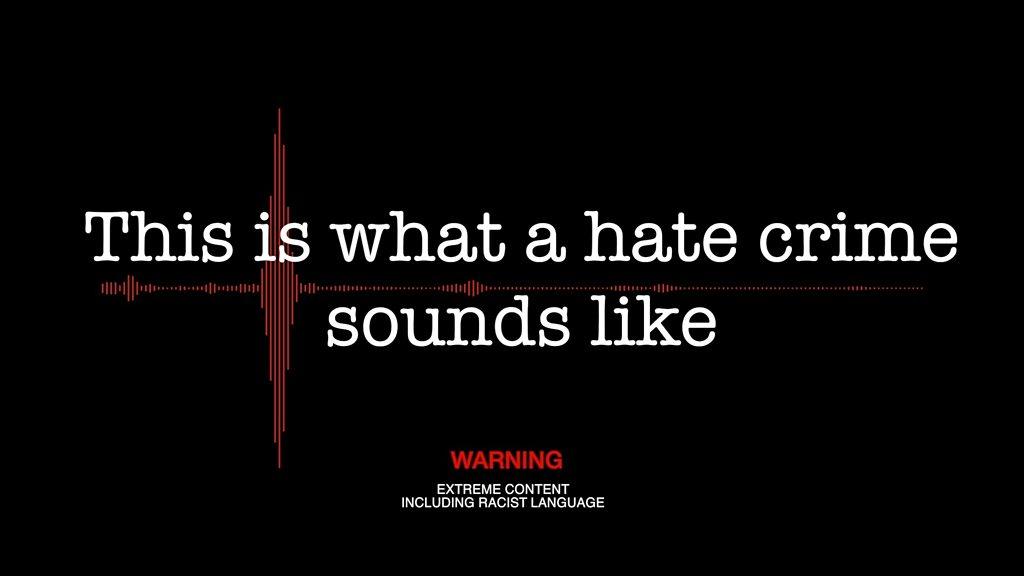No hate crime charge for 'kill a Mexican' attack in Utah
- Published
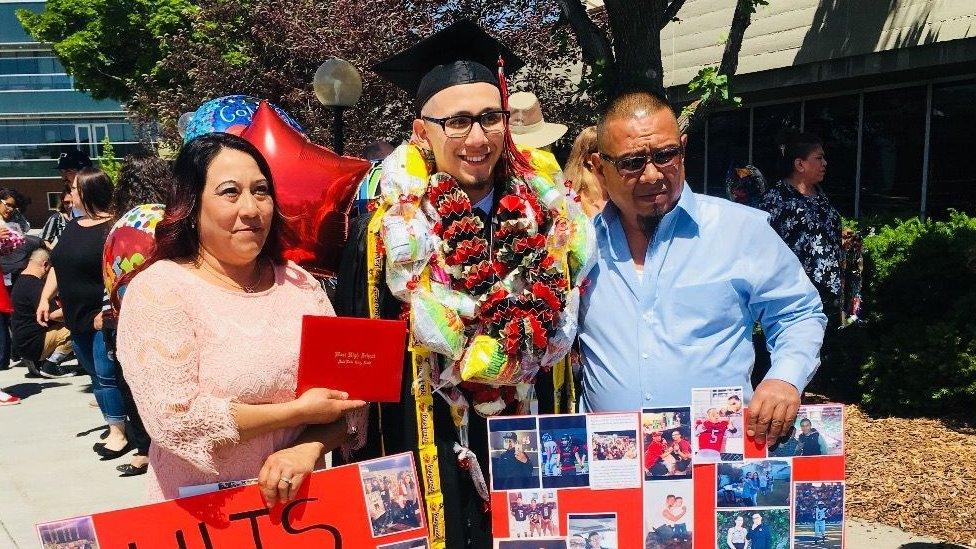
Eighteen-year-old Luis Lopez (centre) is still recovering in hospital from the attack
A legal loophole means a Utah man who allegedly battered a Latino father and son while shouting "I'm here to kill a Mexican" cannot be charged with a hate crime, say officials.
Alan Dale Covington, 50, is accused of brutally beating Jose Lopez, 51, and his son Luis, 18, with a metal bar.
Federal hate crime laws exist, but in Utah only non-serious assaults can be classified as hate crimes.
Police say Mr Covington's mental health issues complicate the situation.
This story contains an image that some readers might find disturbing.
A Salt Lake County police log, external said the suspect walked into the Lopez Tires mechanics' garage in Salt Lake City on 27 November with a metal pipe. He declared he was going to kill someone before attacking.
The family told the Salt Lake Tribune, external that Mr Covington had been shouting slurs before the attack, saying "I hate Mexicans" and asking if the Lopez's were "part of the Mexican Mafia" prison gang.
He hit Luis first, knocking him unconscious, the family said. When Jose tried to protect his son, he was hit as well.
Luis remains in hospital recovering from serious injuries.
On a GoFundMe page, external to raise money for the family's medical bills, Jose Lopez's daughter Veronica wrote that doctors had to operate on her brother, using a titanium plate to hold his "shattered" face together.
Her father had eight stitches in his arm and bruising to his back, she added.
According to county records, Mr Covington faces eight charges, including two felony counts of aggravated assault on top of drug and weapon charges.
But under a much-debated Utah state law, only misdemeanour-level crimes can be charged as hate crimes, not more serious felony offences.
"Whether this was a hate crime or not is not even an issue for me to bring to the table - I don't have a statute that allows me to do it," Salt Lake County District Attorney Sim Gill told the BBC.
"The state has abdicated its responsibility for the last 20 years - that's why there's never been a hate crime prosecuted at the state level."
County Police Detective Greg Wilking told the Tribune it appears Mr Covington had "some mental health issues" and had taken drugs before the assault.
"We don't want to ignore a hate crime if it's a hate crime, but we don't want to make it a hate crime if there's not that aspect of it," the detective said.
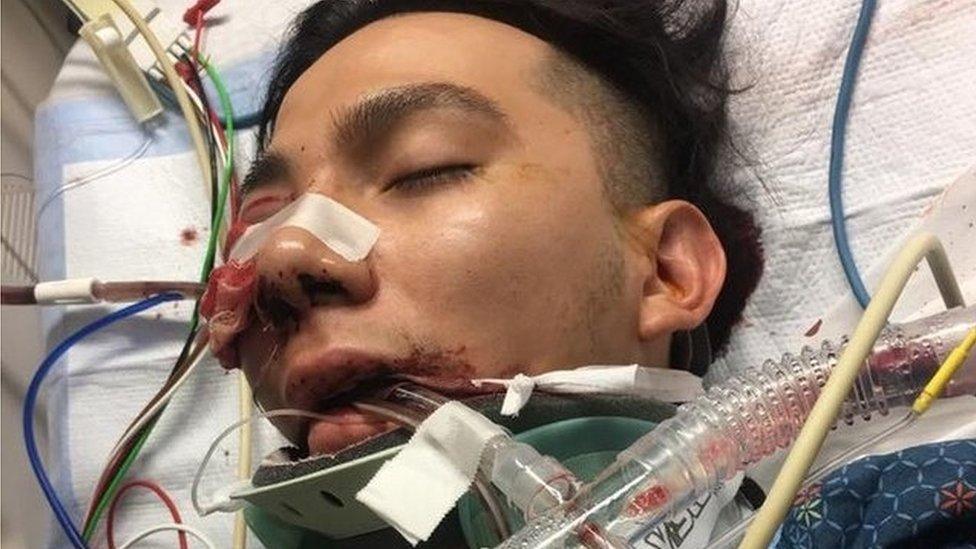
Luis Lopez had to undergo surgery after the alleged assault
What are hate crime laws like across the US?
In the US, hate crimes are generally defined as bias-motivated physical attacks. Hate crime charges can seriously increase the severity of a sentencing as they are considered attacks on an individual, a community and society.
In Utah, a bill that would allow state judges to prosecute felonies as hate crimes has stalled for the third time.
Mr Gill told the BBC the state had 94 possible hate crimes last year - but only one could be prosecuted at the federal level.
Most states have some form of hate crime laws, but five - Georgia, South Carolina, Wyoming, Indiana and Arkansas - do not have any hate crime statutes at all.
Only 17 have laws covering sexual orientation and gender biases, and 16 do not expressly cover either, according to Family Equality Council, an LGBT advocacy group.
In such states, local authorities must have the FBI and other federal agencies prosecute bias-motivated cases instead.
Hate crimes in the US rose by 17% in 2017, the third straight year that incidents have increased, according to the FBI.
- Published13 November 2018
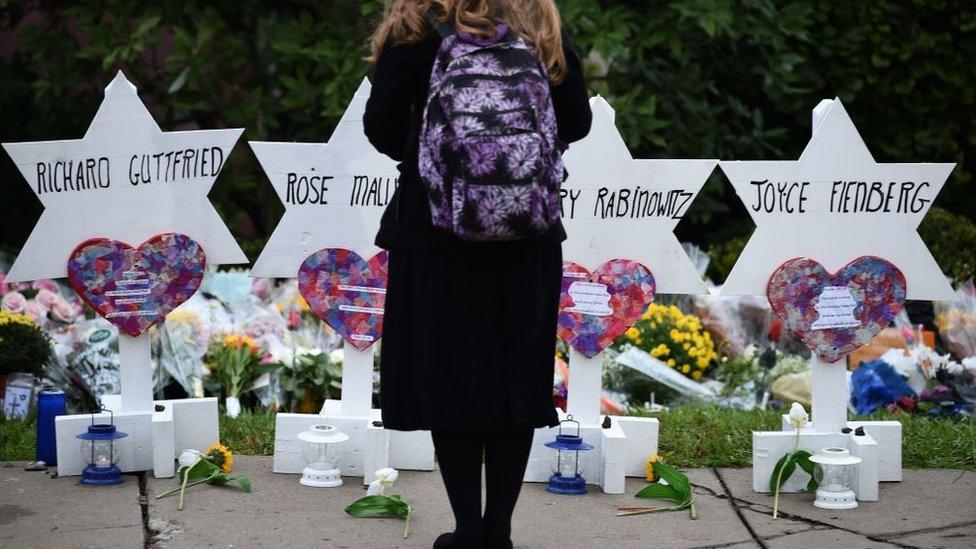
- Published13 November 2018
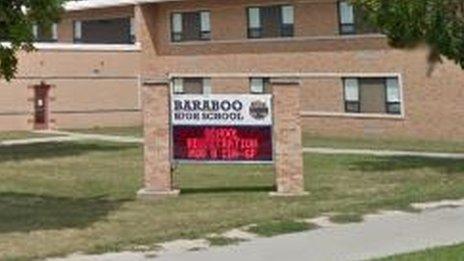
- Published29 November 2016
